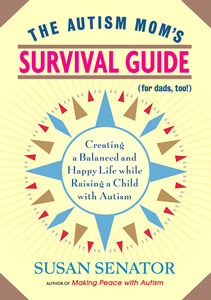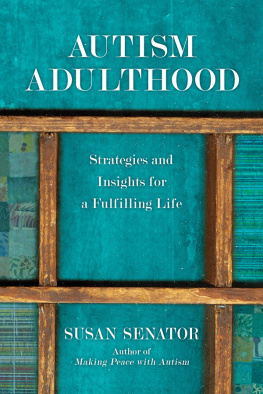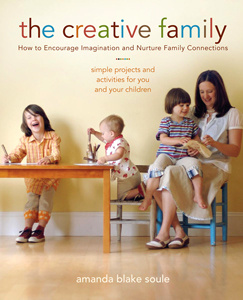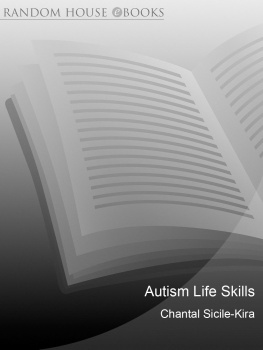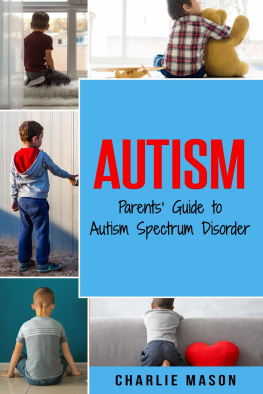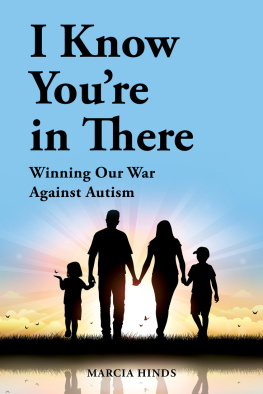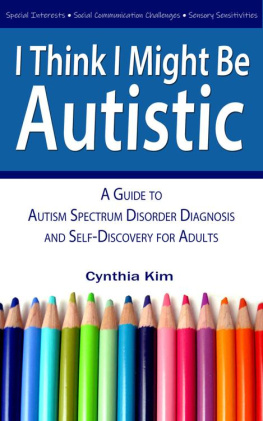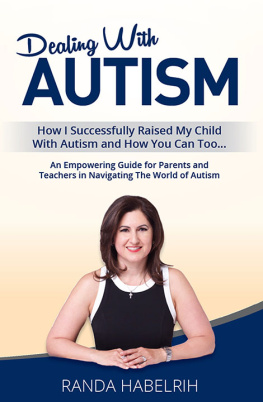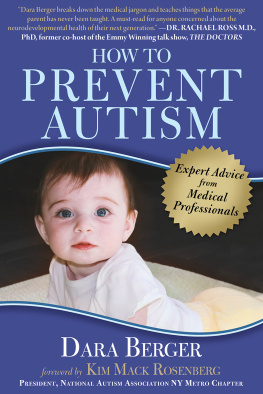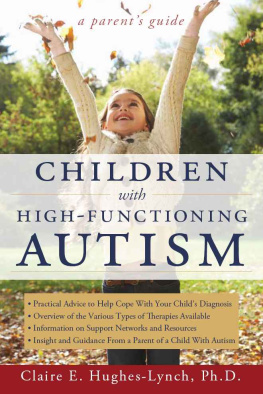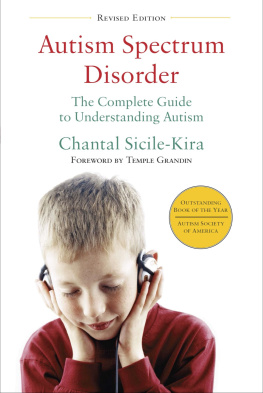This book is as much about the very nature of parenting as it is about autism. The issues Senator raises are issues faced, in some measure, by every family, and she captures the hard work as well as the importance of enjoying life along the way. Making Peace is a book that every parent should read, for it provides tremendous insight into the mind of an autistic person, and is likely to engender compassion and understanding towards individuals with autism spectrum disorder.
Pennsylvania Gazette
An honest, emotion-filled account of what it is like raising an autistic child, its effects on the family, marriage, and ones own test of strength.
Brookline Tab
I hope the book succeeds in finding its way onto the bedside tables of many mothers and fathers, teachers and administrators, politicians and doctors. Regardless of whether they have anything to do with autism, theyll learn a lot about life from Senator, Nat, and their family. What this book shows us about acceptance and love would make the world a far better place.
Timothy Shriver, CEO, Special Olympics
Families will gain much insight into how one family successfully coped with the challenges of raising an autistic child. Mothers, fathers, and siblings should read this honest account of family life with autism.
Temple Grandin, Ph.D., author of Thinking in Pictures and Emergence: Labeled Autistic
This is a book that every parent and professional working with autistic children should own, read, and reread. These children have such enormous potential in their own way. It is so refreshing that this family sees it too.
Margaret L. Bauman, M.D., associate professor of neurology, Harvard Medical School
Senators story reminds us that while there are currently no medical treatments or cures for autism, we must maintain hope.
Karen London, cofounder, the National Alliance for Autism Research
Senators common sense approach and courageous journey give readers a practical and entertaining experience.
Doug and Laurie Flutie, cofounders of the Doug Flutie, Jr. Foundation for Autism, Inc.
This book reaches out to other families in a voice that inspires hope, but without losing realism. The everyday struggles are in the foreground but throughout her positive spirit illuminates a path that will make the journey easier for other families, and will help them feel they are not alone.
Simon Baron-Cohen, M.D., director, Autism Research Centre, Cambridge University
ABOUT THE BOOK
Receiving a diagnosis of autism is a major crisis for parents and families, who often feel as if their world has come to an end. In this insightful narrative, a courageous and inspiring mother explains why a diagnosis of autism doesn't have to shatter a familys dreams of happiness. Senator offers the hard-won, in-the-trenches wisdom of someone whos been there and is still there todayand she demonstrates how families can find courage, contentment, and connection in the shadow of autism.
In Making Peace with Autism, Susan Senator describes her own journey raising a child with a severe autism spectrum disorder, along with two other typically developing boys. Without offering a miracle treatment or cure, Senator offers valuable strategies for coping successfully with the daily struggles of life with an autistic child.
Along the way she models the combination of stamina and courage, openness, and humor that has helped her family to surviveand even to thrive. Topics include: the agony of diagnosis, grieving and acceptance, finding the right school program, helping siblings with their struggles and concerns, having fun together, and keeping the marriage strong.
SUSAN SENATOR is the mother of three boys, the oldest of whom has autism. She is also the author of The Autism Moms Survival Guide. Her writing on autism has appeared in the New York Times, the Washington Post, and the Boston Globe. She has been featured on the Today show, CNN, MSNBC, Voice of America, and NPR.
Sign up to learn more about our books and receive special offers from Shambhala Publications.

Or visit us online to sign up at shambhala.com/eshambhala.

Trumpeter Books
an imprint of Shambhala Publications, Inc.
Horticultural Hall
300 Massachusetts Avenue
Boston, Massachusetts 02115
trumpeterbooks.com
2005 by Susan Senator
All rights reserved. No part of this book may be reproduced in any form or by any means, electronic or mechanical, including photocopying, recording, or by any information storage and retrieval system, without permission in writing from the publisher.
The Library of Congress catalogues the previous edition of this book as follows:
Senator, Susan.
Making peace with autism: one familys story of struggle, discovery, and unexpected gifts / Susan Senator.1st ed.
p. cm.
Includes bibliographical references.
eISBN 978-0-8348-2258-0
ISBN 1-59030-244-3 (hardcover: alk. paper)
ISBN 1-59030-382-2 (paperback)
1. Senator, Susan. 2. Parents of autistic childrenUnited StatesBiography. 3. Autistic childrenUnited StatesFamily relationships. I. Title.
RJ506.A9S457 2005
362.196'85882'0092dc22
2005007870

Dedicated to
Ned, Max, Ben, and Nat

Chances are you already know somebody who is dealing with autism. Perhaps you have a child who was recently diagnosed, or a close friend or family member told you her son or daughter has been diagnosed. Its likely that your children know an autistic child at school or in the neighborhood, or that autistic adults work in your supermarket, library, or office mail room.
Autism is a complex and little-understood developmental disorder. Today it is commonly referred to as autism spectrum disorder (ASD) because its severity varies greatly from person to person. (I use the term autism as a shorthand throughout this book.) Autism Spectrum Disorders, which are also called Pervasive Development Disorders (PDD), are in fact a diverse range of disabilities characterized by impaired social interaction and communication ability, as well as by unusual behavior. They are also sometimes accompanied by cognitive deficits.
Even if you dont know someone directly affected by autism, you will soon be confronted with it on some level. According to the National Alliance for Autism Research, autism currently occurs in one out of 166 birthsnearly a tenfold increase over just ten years ago. Scientists are puzzled about this dramatic increase. Compelling theories abound, but as of yet there are no clear answers. Many parents are convinced that thimersol, a mercury-based preservative previously used in some childhood vaccines, triggered their childs autism. Others believe that an intolerance to wheat and dairy products caused profound changes in their childs brain chemistry, which made their child autistic. Still others believe that autism develops in the twentieth week of gestation, as a result of trauma to the fetus. And finally, there are those who believe autism is a genetic disorder, inevitable in some of us, but inexplicably occurring in greater numbers today. The bottom line is that more children are being diagnosed with autism than ever before, and they need help, and so do their families.
Next page
